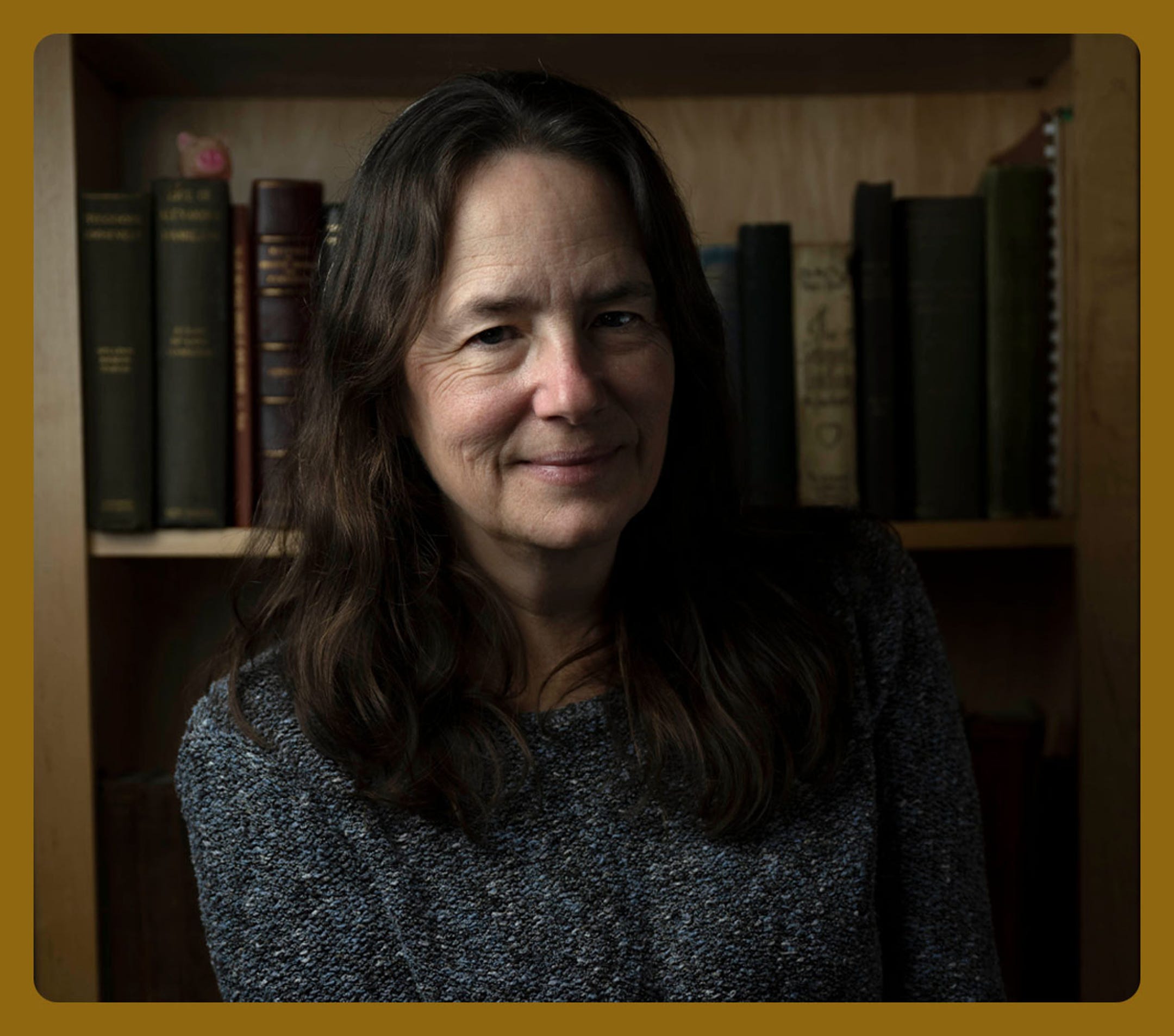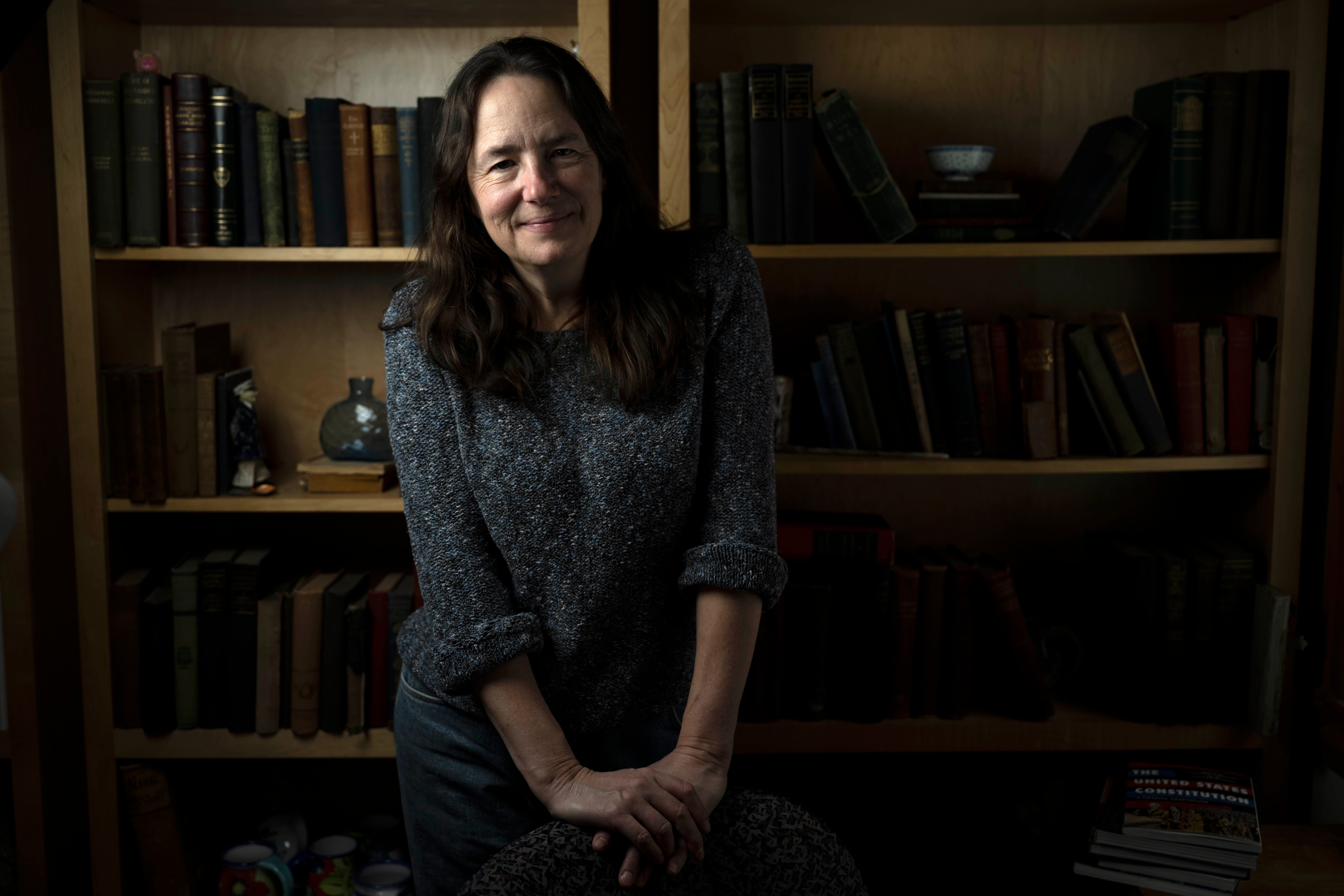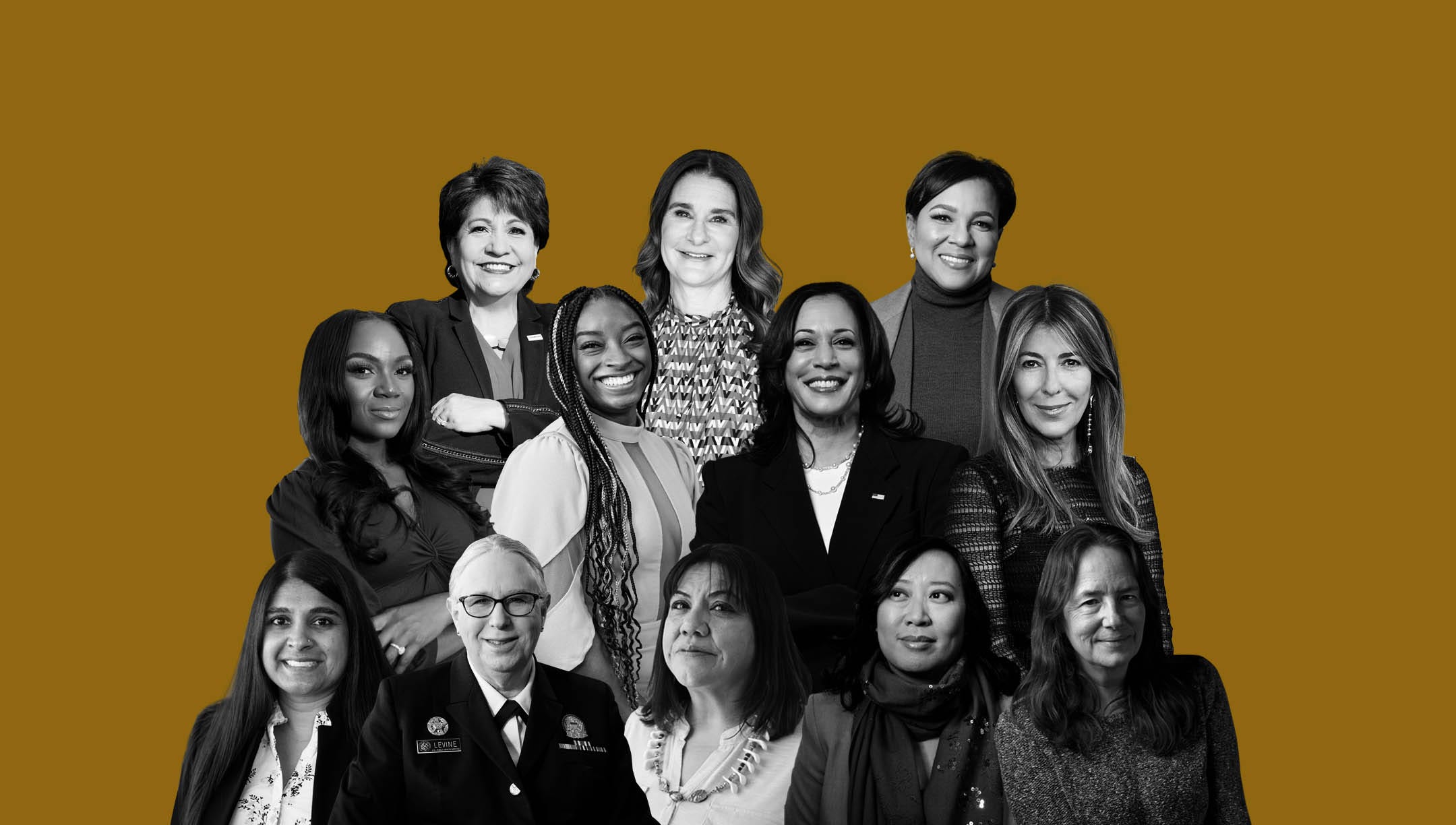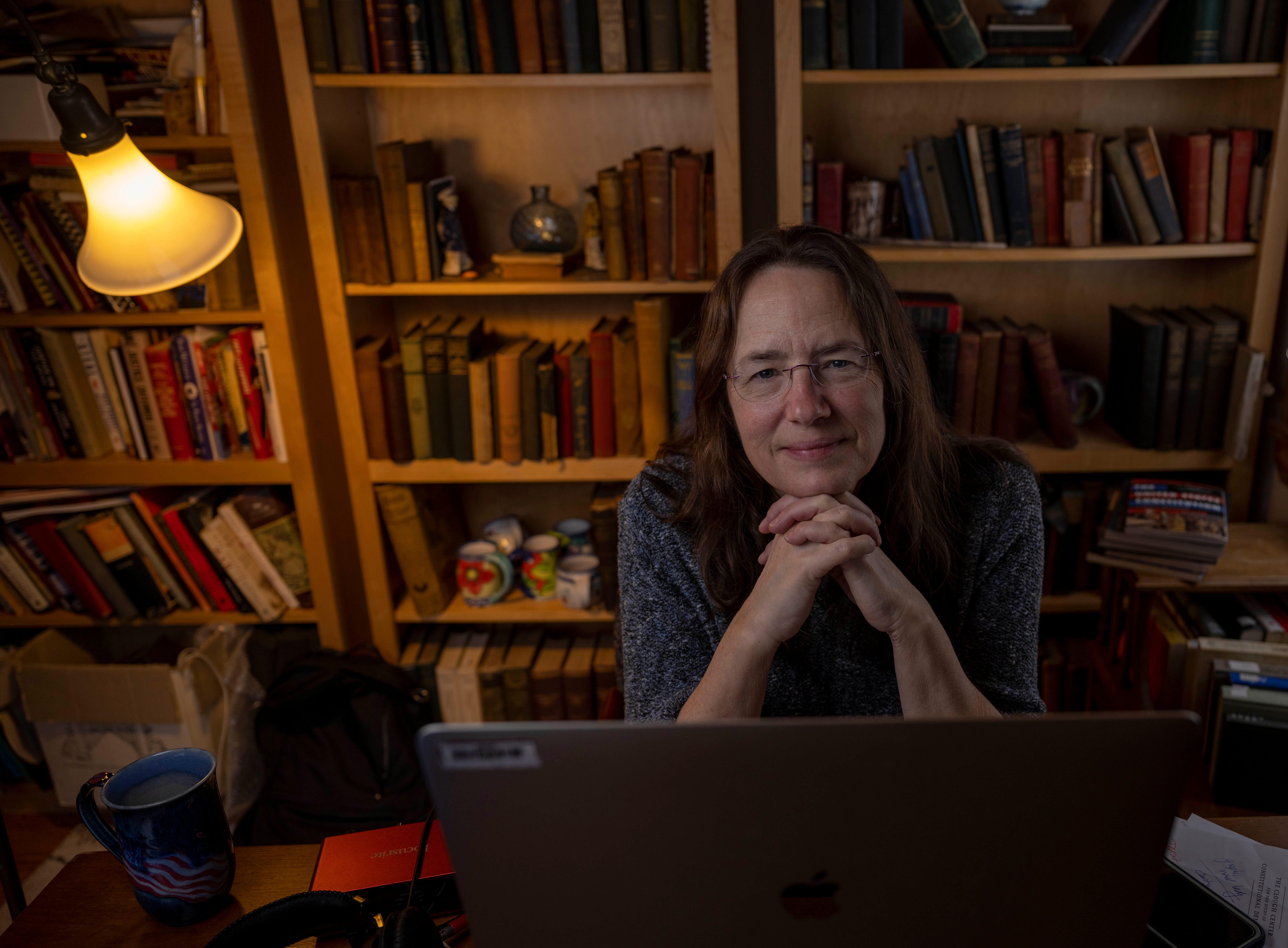
MICHAEL SEAMANS, FOR USA TODAY
MICHAEL SEAMANS, FOR USA TODAY
Heather Cox Richardson is one of USA TODAY’s Women of the Year, a recognition of women across the country who have made a significant impact. The annual program is a continuation of Women of the Century, a 2020 project that commemorated the 100th anniversary of women gaining the right to vote. Meet this year’s honorees at womenoftheyear.usatoday.com.
When the pandemic hit, Heather Cox Richardson, a prolific author, was about to embark on a book tour for her latest masterpiece, “How the South Won the Civil War: Oligarchy, Democracy, and the Continuing Fight for the Soul of America.”
Like everything else, her tour was shuttered. Despite the disappointment, she had an idea – one that would eventually change the landscape of America's political discourse.
Cox Richardson writes the wildly popular Substack daily newsletter “Letters from an American,” where she ties the day’s news to the events of the past. She is a historian and professor of American history at Boston College. She recently was invited to the White House to interview President Joe Biden.
"I was talking to my publicist, and she was throwing her hands up in the air: 'What are we going to do?' " Cox Richardson said. "My answer was simple. 'Listen, everybody who reads me is sitting at home, and they're bored, and they're frightened. And I'm going to just entertain.' "
Cox Richardson started doing Facebook videos that were initially designed to serve as a virtual book tour. As the pandemic spread into a second year, she began another tour, but her faithful audience informed her they didn't really care about the book. They were worried about COVID-19, the political landscape and news events – they wanted her to expound on the daily musings and observations she quietly had begun sharing in 2019.
"So every Tuesday, I started a video where I began explaining modern politics, here's what's in the news," she said. "And then on Thursdays, I'd say, 'Here's some stuff about history.' So now, for I guess it's almost two years, I've tried to entertain people twice a week, with good solid material. It's been wonderful. We've built a real community, and the incredible excitement that people feel, first of all over understanding their world."
Cox Richardson’s work empowers readers, especially members of marginalized groups such as women and people of color. And while she agrees with some experts and academics who believe that democracy is in a crisis moment, Cox Richardson finds unique optimism in the American response. People are asking questions about the Constitution. People are engaged about foreign affairs. People are paying attention, a fact that Cox Richardson said she didn't experience five or 10 years ago.
"My theory is you can't make good choices about your life unless you understand the facts of your life," she said. "I'm a firm believer in democracy and on the incredible importance of a lot of different perspectives on different issues. But unless people are operating from the same basis of fact, they can't make good decisions about their lives or about their country. If you can't figure out what's up and what's down, your only answer is to shrink and to hope that somebody makes good decisions for you. And that's a real burden to carry."
This conversation has been edited for length and clarity.

What role do women play in regard to social change and progress?
There are a couple of things that seem to be really interesting about the moment that we're in right now. And one of them is that American women are in, again, a unique position right now.
We are now looking at a new generation of women who have worked for their lifetimes outside the home, who have strong support networks, who are accustomed to having a say in the world and who are probably in a position to have some space of their own for a change. Maybe their children have left home, or they have a knowledge base and a sense of an ability to do something. And rather than sort of winding down the clock, a lot of us are looking at 20-30 more years of being able to speak up and change the world.
I think that's an enormously, enormously powerful force. Another thing is that women and people of color right now have for at least a generation been accustomed to recognizing that they have something to contribute to the world and that they are starting to be able to find space to do that.


From your perspective, does a sense of community still exist?
Yes, of course. People are people. I wonder, in fact, if we're moving more toward it. It's just a different kind of community than my generation knew. I think television has made a huge difference in the way people interact, in part, because instead of going out, people can sit home and be entertained. And we have different technologies. But I think we'll continue to make the same human connections that we always have – they're just going to be different human connections.
It's worth remembering always that every single generation from probably the first Indigenous person who splattered a handprint on a wall has lamented about how the next generation is really messing up. And it's kind of a truism. I just think it is cool to stand back and see what the next generation does.


Is there a guiding principle or mantra you tell yourself?
Not a mantra, but there is a guiding principle for sure. And that is that I believe fervently in human self-determination. I firmly believe that humans have the right to decide how they are going to live their lives, and that democracy is the system of government that is most likely to enable us to do that. Is it perfect? Absolutely not. Do people make good decisions all the time? Absolutely not.
But I believe we have the right to make those decisions. And that what is most important to me is preserving people's right to make their own decisions about their own lives based in reality, and to try and support democracy as part of that system to enable people to have self-determination.

How do you overcome adversity?
It's the same way you become a hero or that you demonstrate courage: You just put one foot in front of another. And literally, sometimes that's one of the hardest things to do. Just putting one foot in front of the other can be such an incredible triumph. And that's always worked for me – just one freaking step at a time. One word at a time. One project at a time. That's how you get through anything.


What advice would you give your younger self?
Here's the one that I can never do, even though I am now 59 years old, and that is trust to time. I have a friend who always says that to me when I'm like, "No, no, I want it now." They encourage me – trust to time. Then I would say living; you really only get one shot.
The things that have been best for me in my life are the things I have done that were quirky, weird. I started doing what I do now because a friend offered me an opportunity to write for a children's magazine. I was on the tenure track at a university, when you're supposed to be focusing all the time on your scholarly work. And I said, "Sure, I'd love to write for a children's magazine." And people were like, "Why are you doing that?" I said, "Well, it sounds like fun."
I think as you age, if you're lucky enough to be one of those people who gets to age, it creates a different way of looking at the world and perhaps a different skill set that then makes you feel like you are truly you.

How do you relax? What do you do to psych yourself up?
In order to think, I need repetitive motion. So I walk a lot, and as soon as I can get a boat in the water – I wear a wetsuit so I do it most of the year – I kayak. Because being outside is really creative time for me. I always walk with paper and pen, and I kayak with paper and pen quite frequently as well.
When I'm working on a project, I have a certain sort of music for each book, different playlists. It runs heavily on classic guitar – Mark Knopfler and all the greats. Billy Strings is a big one for me right now. I like really good, classic Americana or rock music, and I know I'm really writing well if I can't hear it. But it's got all the the great, old stuff from Motown and Linda Ronstadt and Jackson Browne, right up through Led Zeppelin and Cream – all the stuff that somebody who was born in 1962 would listen to.
National columnist/deputy opinion editor Suzette Hackney is a member of USA TODAY’S Editorial Board. Contact her at shackney@usatoday.com or on Twitter: @suzyscribe
